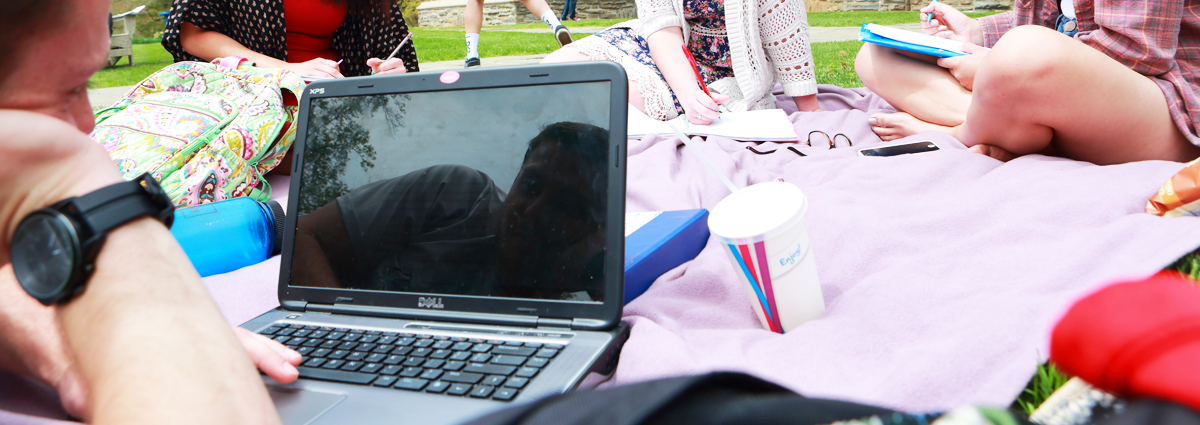DMCA Policy
The Digital Millennium Copyright Act (DMCA) was signed into law by President Clinton on October 28, 1998.
The legislation implements two 1996 World Intellectual Property Organization (WIPO) treaties: the WIPO Copyright Treaty and the WIPO Performances and Phonograms Treaty. The DMCA also addresses a number of other significant copyright-related issues.
Cabrini’s Acceptable Use Policy includes a statement about copyrighted material:
- Users may not engage in the unauthorized copying, distributing, altering or translating of copyrighted materials, software, music, or other media without the express permissions of the copyright holder.
Peer-to-peer networking (P2P) is a decentralized type of computer networking where files reside on individual client computers rather than on centralized servers.
P2P programs include Kazaa, Bearshare, ArezWarez, Bittorrent, Gnutella, DirectConnect, and Azureus.
P2P is not inherently illegal, but using P2P technologies for the purpose of downloading and sharing copyrighted files is illegal under the terms of the DMCA.
DMCA violators can expect to face harsh civil and criminal penalties including fines of up to $250,000 per file and 5 years in prison.
Users who illegal share copyrighted materials without permission using Cabrini’s network are also subject to immediate revocation of network access privileges and monetary fines commensurate with primary, secondary, and tertiary offenses.
Cabrini’s Office of Information Technology and Resources (ITR), as an Internet Service Provider, is legally required to comply with the provisions of the DMCA.
The first violation results in a warning and loss of network connection privileges (wired and wireless).
When the illegal files and file sharing software are deleted and a written warning has been issued by Residence Life, signed by the student and returned to ITR, the port will be reactivated.
A second DMCA violation results in a two week suspension of network connection privileges in addition to the steps outlined for the first violation.
A third DMCA violation results in suspension of network connection for the remainder of the term in addition to the steps outlined for the first violation.
Cabrini ITR, as an Internet Service Provider, is legally required to comply with the provisions of the DMCA.
- The copyright holder sends Cabrini’s Designated DMCA Agent a notice of infringement. The notice identifies the IP Address, Date, Time, Filename(s) and P2P protocol.
- ITR begins an investigation, attempting to match the identified IP Address on the network at the stated time of infringement.
- ITR identifies the alleged infringing network device and Cabrini ID user.
- If a registered user is found, an email containing the original DMCA notification is sent to the registered user requesting the user to come to ITR to have the illegal files and file-sharing software deleted.
- If the registered user does not respond in three days, his or her network connection will be disabled.
- Residential users who have acknowledged notice of a DMCA Violation will be required to re-register their network jack.
Questions related to the DMCA and filesharing should be sent to the Help Desk at 610.902.8366 or ITRhelp@cabrini.edu.
